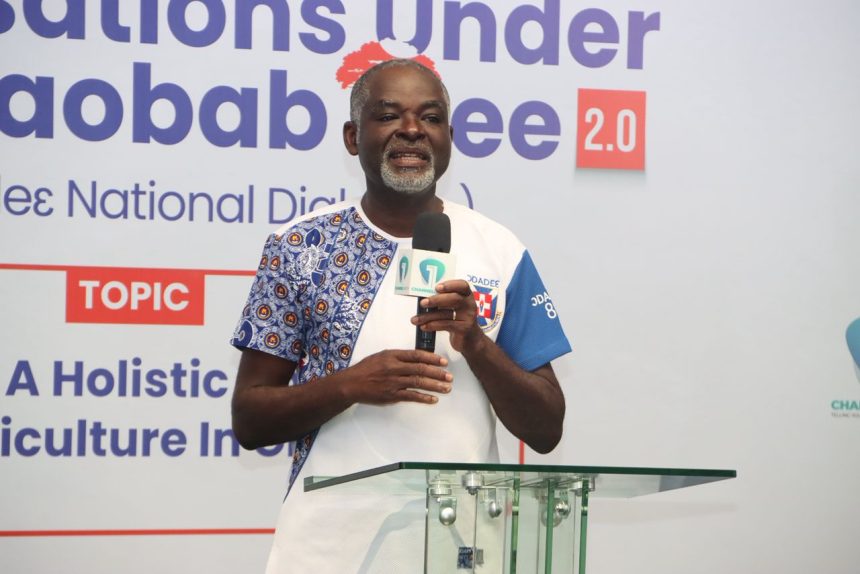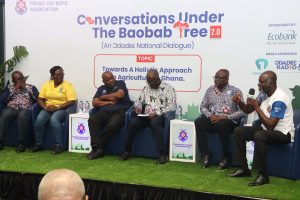Agribusiness consultant and farmer James Somuah has called for a paradigm shift in mentality regarding how agriculture is practised in Ghana.
His call comes on the back of the Old Boys of Presbyterian Boys Secondary School, Legon, holding its second Thought Leadership Series for the year, dubbed Conversations under the Baobab: “Towards A Holistic Approach to Agriculture in Ghana.”
The well-attended event, which took place at the Ecobank Transnational Ghana Head Office in Accra on July 31, brought together seasoned policymakers, old students, distinguished alumni, journalists, sister alumni associations, and members of the general public to brainstorm on the agriculture sector in Ghana.
Speaking at the event, Presec 1984 alumnus James Somuah indicated that the laissez-faire approach successive governments in Ghana have taken toward agriculture accounts for the lack of significant innovation and financial impact beyond a few crops.
“In Ghana, over the years, the way governments have classified agriculture is the bane of our development. We are quick to say that our population is 70% agro-industry employed, but that is just the tip of the iceberg. In any developing and dynamic society, research and innovation play a critical role in harnessing both natural and human resources, matched by government readiness to sink huge funds to support such sectors,” he stated.
“In our country, policymakers have paid lip service to the agric sector for decades, while overly relying on rain-fed and subsistence farming, which cannot oil the wheels of our nation’s economic transformation. Industrialised and semi-industrialised nations like America, Canada, Brazil, and India have classified agriculture as a business model supported by huge state resources and machinery to maximise sector gains, giving them billions of dollars from growing crops and agro-products for export over the decades. I have had the experience of working as a consultant for multinational companies in these areas,” Mr Somuah added.
“Until we have a national conversation on the fate of our agric sector and put our monies where our mouths are as a country, agriculture in this country will just be a chore rather than a viable economic venture.”
He further bemoaned the fact that agricultural research from state institutions and universities remains idle in faculties and offices due to the absence of a national linkage strategy to translate high-quality findings into practical, result-oriented policies that benefit the sector as a whole.
“To further compound the issues of innovation and economic transformation of our agric sector, the country’s research entities are isolated from mainstream policy-making decisions. As such, these brilliant findings they churn out rest idly on shelves and desks in our offices and facilities, while the ordinary farmer struggles to get the basic etiquettes of farming right in the field,” he lamented.
“It is very sad that for several decades, even as our leaders tout our economy as an agrarian one, we do not have a national research linkage strategy and a central entity to coordinate research across the board to support the holistic economic development our country seeks,” Mr Somuah emphasised.
“With leading agriculture-based nations like India, Brazil, the USA, and Canada using cutting-edge innovations and machinery to commercialise the sector and pulling in billions of dollars for their home economies, we in Ghana and Africa, though blessed with huge tracts of fertile and arable land, remain stuck in subsistence farming due to poor state policies and funding for this goldmine sector that could guarantee sustainable development for all our citizens.”
The event is the second in the series for the year, curated by the Alumni Association of PRESEC to inform government policies and programmes on a national level by bringing together distinguished personalities who are excelling in their fields of endeavour, both at home and abroad.
–
Story by Sika Togoh|univers.ug.edu.gh


